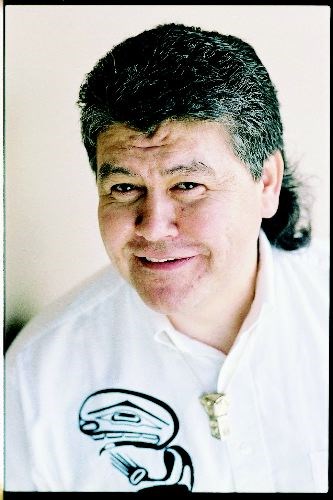Vancouver-based businessman Matt Vickers believes he has the answer to the ongoing controversy over Enbridge's proposal to build a pipeline across northern B.C.
It would cost at least $12 billion and involve construction of a 2,000-kilometre railway from Fort McMurray, Atla. to Delta Junction, Alaska.
But Vickers claims his company, G Seven Generations Ltd., (G7G) has something Enbridge does not.
"I have letters of support from all the leadership of First Nations and tribes for this project, which is unprecedented, it's never happened before," said Vickers of Tsimshian-Heiltsuk and English heritage.
Vickers also says an investment banker from Germany - he declined to provide the name - is willing to raise the money not only for the initial project but a further $8 billion for railway lines along Highway 37, from Highway 16 to Watson Lake and from Fort Nelson to Watson Lake.
"If I didn't have that, there is no way I would've got letters of support of all the First Nations from Alaska to Yukon, to B.C.," Vickers said.
He's billing the idea as "the major alternative" to Enbridge's $5.5-billion Northern Gateway pipeline which would transport crude from the Alberta oil sands to B.C.'s northwest coast at Kitimat for delivery overseas to Asia.
The 1,170-kilometre pipeline would pass just north of Prince George near Bear Lake, and also near the communities of Fort St. James and Burns Lake and has attracted increasing criticism from First Nations, environmental groups and some Northern B.C. communities over the risks and impact of an oil spill.
The project is going through a federal joint panel review process.
Vickers maintains rail is a much environmentally-safer method of transporting the material and can also be used to carry other products, notably supplies to the mines planned for northern B.C.
"When a pipeline springs a leak, you have thousands or hundreds of thousands, of barrels of oil spewing into the land or river," Vickers said. "If, God forbid, there was a major derailment, the cars designed now to carry this product are like a double-hulled tanker. You could drop them off a 200-foot cliff onto a rock bottom and you wouldn't have a rupture."
Depending on efforts to electrify Highway 37, Vickers said the railway would not have to burn diesel.
"I believe that if B.C. pushes [the Northwest Transmission Line] up to Dease Lake instead of just to Bob Quinn, then the Yukon government is going to push down to from the Yukon and join it at Dease Lake, so you're now going to have all of Highway 37 electrified," Vickers said.
The next step is to raise $10 million to $15 million for "soft costs" to get the project to the business plan stage. But if the proposal clears all the hurdles, Vickers said it should take about six years to build.
Building a rail link from B.C. to Alaska has long been an unfulfilled dream.
In 1969, a 650-kilometre link was launched under then-premier W.A.C. Bennett to extend B.C. Rail up into the southwestern Yukon and eventually tie into the Alaska rail system when when it was expected to cost $68 million.
But by 1977 the projection had skyrocketed to $320 million and the project was abandoned just short of the midway point. In 1989, B.C. Rail was forced to write down $81-million for the project.
For more information, visit www.unfnrailco.com.



